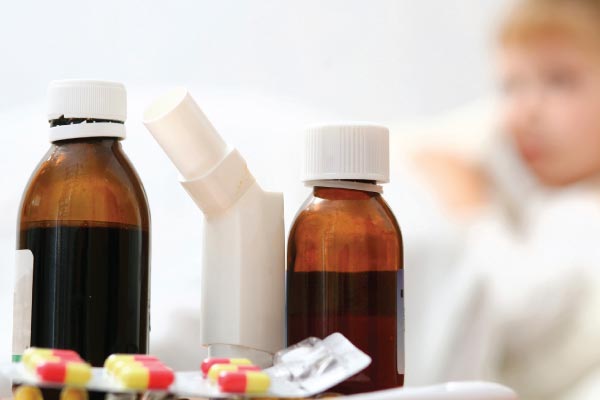Every day, four busloads of children are treated in emergency departments due to unintentional drug poisoning. Make sure your child isn’t one of them.
In a 1997 study published in the Archives of Paediatrics and Adolescent Medicine, 70 per cent of parents had trouble figuring out how much medicine to give their child. If those labels occasionally mystify you, you are not alone.
Researchers at Emory University’s School of Medicine in Atlanta found that only about 40 per cent of the 100 caregivers (including parents) in the study were able to state the right dose of their child. Only 43 per cent were able to measure a dosage accurately. Overall, only 30 per cent of the caregivers were capable of both accurately identifying and measuring the right amount of medicine for their child.
Read the label
How can you make certain your child is receiving the amount of medicine they need? Read the label carefully when you buy or pick up a new medicine. Check when it’s time to administer it before you pour it out.
Follow the instructions on the package to ensure that your child is getting the correct dose for their age and weight. If you do not understand the directions, call the pharmacist or doctor.
Try to keep medicines in their original packaging unless the complete instructions and ingredients are on the bottle. Equally, if you do lose a label or a set of directions, do not use the medicine. Giving it your best guess is not worth the risk.
What you should know
Talk with your pharmacist or doctor about the medicine you will be giving your child. If it is a prescription medication, ask specifically what it is for and what side effects might occur. Find out how soon it should begin to take effect and how long the prescription should last.
Also, check if it will interact with any other medications your child is taking. Find out what you should do if you miss giving your child a dose. Does the medicine need to be kept in the refrigerator, or out of the heat or light? Can you put it in food or should you avoid giving your child certain foods at the same time they take the medicine?
Some medicines have to be taken after eating or, contrariwise, on an empty stomach. Others are absorbed into the body more effectively if they are accompanied by particular foods.
Ask your pharmacist to go over any particular guidelines and storage recommendations with you. Keep medicines that do not need to be refrigerated in a cool, dry place. Do not keep them in your bathroom medicine cabinet, which can get warm and moist from the shower.
What you can do:
• Voice any allergies your child has to both the doctor and pharmacist.
• Before you head home, make sure you understand the dosage and how and when to give it.
• Examine the numbers in the directions very judiciously so you do not accidentally double or halve a dose. Read the instructions and measure the dosage in good light.
• Know your child’s weight. Some dosages are based on weight or age.
• Do not confuse teaspoons (tsp or t) and tablespoons (Tbsp or T).
• Keep in mind: 1 millilitre (ml) = 1cc and 1 teaspoon = 5cc.
• Never give your child more medicine than is recommended on the label or in the instructions. Dosages are based on the amount of medicine that’s safe and not on the severity of the illness.
• Call your child’s doctor if you notice any unexpected side effects.
• Do not give your child another child’s prescription, an old prescription or aspirin. This can result in a serious illness called Reye’s syndrome that causes swelling in the liver and brain.
• Keep all medicines securely out of reach. Follow an expert’s advice on the best way to dispose of expired medication.





































